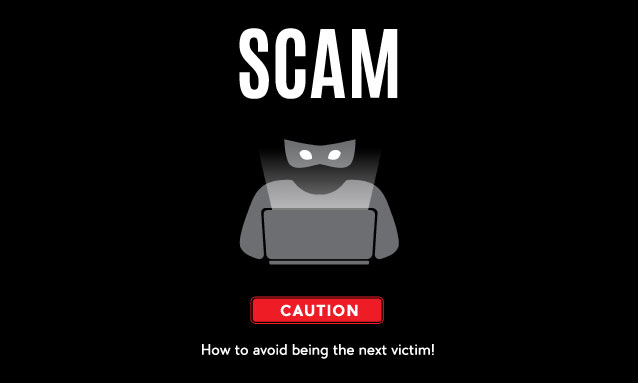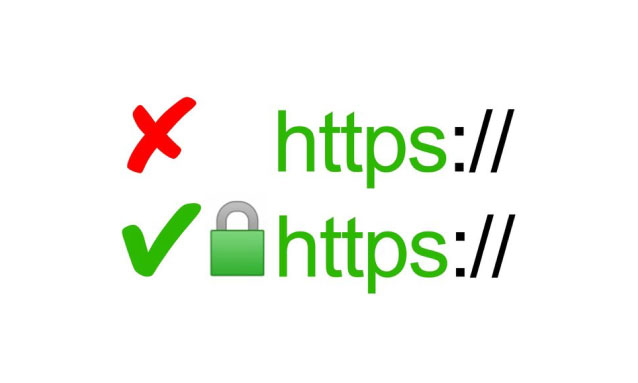
I’ve always been a huge fan of online shopping, from clothes to books and beauty products. It’s convenient and can unearth fantastic bargains, so what’s not like? Sadly, the worldwide web is teeming with unscrupulous scammers who are relentless in their quest to rob people of their hard-earned money. Today it’s you, tomorrow it’s someone else – there’s no end to innocent, eager and gullible people to dupe! If you want to avoid being the next victim, read on!
So, the MidWeek Sun recently quoted the Botswana Police Service Forensics Department saying Batswana had been swindled out of P37 million in the few months since 2021. The article stated that most of the scams came out of Asia and South Africa. Unsurprisingly, more and more Batswana have taken to online shopping since the pandemic hit, a trend that is reflected worldwide. I have been shopping online for years and have become quite the expert at spotting a scam a mile off. I see many people jumping up and down with glee when they see ‘amazing offers’ on social media platforms, especially Facebook and shudder. These range from all the weird and wonderful cryptocurrencies out there, forex trading, online earning sites, get rich schemes and women’s popular hair products, among others.
Once bitten, twice shy!
One of my earliest shopping experiences was via a site purporting to be a Chinese wholesale clothing store. This first foray into online shopping is the reason I know everything I now know about online shopping. To cut a very long story short, I was living in the UK at the time and thought I’d buy a lot of wholesale clothes to resell when I returned home to Botswana. I stumbled across what I thought was an amazing Chinese clothing wholesale and was blown away – the clothes were gorgeous and appeared beautifully made. And the cherry on top? The items were dirt cheap. This should have been a glaring red flag. But I was too far gone, I just couldn’t believe my luck!

I went ahead and placed an order for £350 on my credit card. For some reason, my gut feeling said to start small, and then if I really liked the clothes, I could go back and buy more. When I finally received my order, no words can truly describe how shocked and disappointed I was. I was so incredulous that I became delirious from the shock of it – alternating between laughter (if you can even call it that!) and crying. I mean, the items I received were not even finished! The workmanship was so shoddy, some clothes had hanging thread, unfinished hemlines, uneven stitching (forgivable), gaping holes, missing buttons… I could go on! Simply put, they were a far cry from the pictures on the website. So I’d been well and truly had.
Once I’d brushed myself off and made peace with the embarrassment of being so easily scammed, I took to Google to search for Causeway Mall reviews. I was nowhere near prepared for what I unearthed! Causeway Mall, the wholesale site I’d purchased from had pages upon pages of horrible reviews from aggrieved customers the world over! I was floored but equally felt stupid. When I tried to contact Causeway, I hit a brick wall. It felt almost like they were nowhere to be found, like they had simply vanished off the face of the earth. So in the end, I had to let it go, cut my losses and move on. Ever since that humbling experience, I have made it my business to expose scams and appalling service where I can, and in that spirit, put together this article to help you all avoid online scammers.
Don’t be a victim: how to protect yourself from online fraud
I always say you can never be too careful because online scammers are relentless. The minute you let your guard down, they take you to the cleaners. So, here are a few pointers on how to protect yourself from being burned.
Research the website before placing your order
Before you decide to click pay, do your homework about the online store, the product and the seller. Carefully read the terms and service agreement and review feedback left by other buyers. You should also review the fine print and ensure that the seller has a return policy.
If you’re shopping on Amazon, AliExpress, eBay or any of the popular online platforms, be sure to check out the reviews and look out for ‘reputable seller’ badges. But bear in mind, some of the rave reviews may be fake! I have been approached to post positive reviews in exchange for free items, regardless of quality and each time I’ve said no.
Location, location, location
Another thing to look out for is if the seller tells you the item is located in one place and then requests that you send payment to an entirely different location. This should set off alarm bells. It says to me the vendor may be hiding something, and it’s best to walk away and save yourself the heartache of being duped.
Look out for contact details
Whenever shopping online, always check the website for contact details to verify if it really exists. Things that need to be clearly stated are the name of the company, the address, the email address, a contact form and a telephone number. Don’t trust a website just because it has a European or American extension – it doesn’t mean that it’s necessarily located in that country. Plus, even those countries have scammers.
Watch out for fake websites
An additional scam making the rounds on the Internet involves fake websites. These sites resemble legitimate e-commerce websites with credible-looking logos, pictures and payment options. Here are some tips for ensuring a site is honest:
Ensure the URL code is legit
Don’t trust websites that don’t have Secure Sockets Layer (SSL) encryption. You can check it in a few ways: a padlock symbol should appear in the address bar of your browser, and the first letters in the address bar should change from “HTTP” to “HTTPS,” especially when you reach the payment stage.

Déjà vu- does the site seem oddly familiar, but you can’t quite put your finger on why? Run! Some scammy sites have been known to clone legitimate, popular sites to steal your money. To the untrained eye, the websites can be so authentic looking, it’s not easy to tell the difference.
Does it look and sound too good to be true? It almost certainly is!
If you see low prices or discounts above 55%, it might be too good to be true. For you ladies who love human hair wigs, if a site offers three wigs for $40, it’s a classic sign of a scam. Chances are you may receive the three wigs, but they are not likely to be of any use to you because the quality will more than likely be beyond shoddy. You may not receive them at all.
Of course, there are incredibly good offers out there. But to stay safe, treat everything with a healthy dose of suspicion to avoid being conned. If you don’t know the site, can’t find any reviews and it seems very new, this could well mean the site is scammy. Most flashy Facebook adverts fall in this category.
Check how old the site is – review the copyright date and domain creation date
Avoid buying from young websites, especially if they have few to no reviews. There is no end to online scammers, but consumers and merchants alike can avoid becoming e-commerce fraud victims if they pay attention and are aware.
Avoid using your debit card – use PayPal or a credit card instead
When you pay for something online, follow these 3 golden rules:
- As mentioned above, always pay on a page that is secured (displaying a padlock or key logo and with a URL address beginning with “HTTPS”).
- Pay by credit card if possible, as you may be able to recover your money from the credit card issuer in case of fraud. Alternatively, use PayPal because if anything goes wrong, you can file a dispute and may be able to get your money back.
- Completely avoid direct money transfers (such as paying directly from your bank account, Western Union, MoneyGram, etc).
Personally, if a vendor doesn’t accept PayPal or credit cards, I walk away. When you pay via PayPal or a credit card, you’re better protected and can file a dispute against the vendor. If you pay via your debit card, you have no leg to stand on, you’re on your own.
Some online shoppers completely lose hope, thinking that they’ll never get their money back after being scammed. While it is difficult to get your money refunded after you’ve been ripped off online, there are some instances where you can get your money back. For example, if you ordered a product from an online store using your PayPal account and your order hasn’t been delivered, PayPal Buyer Protection can cover you.
However, there are limits to what they can do. If a scammer set up a convincing clone of the PayPal payment form that just extracted your bank details, you will not enjoy the PayPal Buyer Protection. Keep this in mind anytime you’re shopping online.
One more thing to remember is the benefit of using credit cards versus debit cards. As mentioned earlier, both banks and credit card companies have certain protections against fraud in place. A credit card can act a little like a buffer – an extra step between the fraudulent charge and you actually having to pay – and many cards offer some type of purchase protection for situations like this.
*This is standard the world over, however, it may be different in Botswana. Please check with your card issuer.
Broken English? Run for the hills!
Check out the website to make sure it looks professional. Most fake websites look suspicious right from the off: they have spelling mistakes, low-quality pictures of the products, etc. And watch out for the excessive use of words like “cheap” and “outlet” – professional sellers prefer words like”great deals”, “affordable” etc.
How to spot a fake review
As mentioned previously, it’s always prudent to scour the internet for reviews. Having said that, it’s worth mentioning that not all reviews are kosher! There’s so much trickery in the online space, you can’t always tell fake reviews from the authentic. Online vendors have been known to resort to underhand tactics including buying reviews from various content creators including bloggers and influencers, posting fake reviews and trashing competitors.
So, rather than just looking at the positive reviews, I would urge you to also look for telltale signs in the negative reviews. I often skip the positive reviews because I want to know what the vendor is getting wrong. Where possible, also seek out independent online forums and review sites where you can get authentic and unfiltered opinions.
Two good sites to use for reviews:
Are there lots of oddly similar reviews?
It should be a red flag if you notice a pattern in the reviews across several websites.
Reading through reviews, you might notice a whole set that uses similar word groupings and writing style. This often means the reviewers are either copying information or that the reviews were all written by the same person.
Are the reviewers all very new?
Watch out for reviews from new accounts. Some of the reviews should be from long-standing members of the site. You might find the person has reviewed hundreds of websites, which gives them more credibility than someone who’s only reviewed one site.
Is the review non-factual or overly factual?
Facts are important in a review; don’t trust a review if facts or actionable information is light on the ground. Similarly, a review that gives no personal opinion at all may well be a fake – and in any case, it’s not a great deal of help.
Can you only find very few reviews, or worse still, none at all?
Personally, if I search for reviews and I can only find very few to none, I skip right along onto something else. As they say, it’s better to be safe than sorry!
To conclude – by following all the guidelines here, will you avoid all the scams out there? Sadly, I can’t guarantee you won’t ever be scammed. However, as the saying goes, forearmed is forewarned, and that means you’ll be able to spot MANY scams a mile off and give them a wide berth. For instance, going off on a slight tangent; I know a lot about online work and the pitfalls that come with it, but even I managed to walk right into a couple of traps as recently as 2020. But that’s a story for another day!



